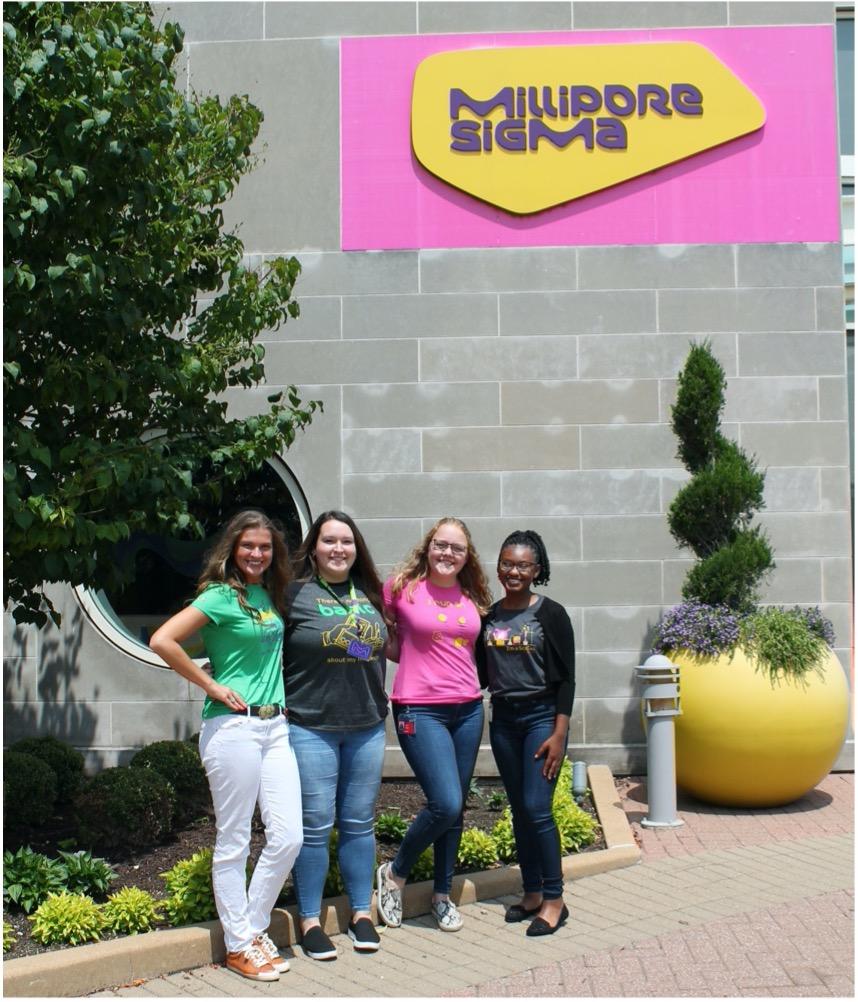MilliporeSigma Provides Hands-on STEM Experience for Harris-Stowe State University Interns

Elizabeth Berger chose to pursue her education at Harris-Stowe State University (HSSU) in St. Louis because of its rich history, affordable tuition and the opportunity to pursue a career in STEM.
Thanks to a program sponsored by MilliporeSigma, the U.S. and Canada Life Science business of Merck KGaA, Darmstadt, Germany, she received hands-on exposure to help her see what a career in science and technology has to offer.
“I enjoyed working with all of the lab equipment. Getting exposure to capillary gel electrophoresis and gas and liquid chromatography machines was a huge bonus for me, especially since I want to eventually go into the STEM industry after I am done with school,” said Berger, a 2021 MilliporeSigma summer intern and a recent HSSU biology graduate.
MilliporeSigma supports HSSU through financial and in-kind product donations, a summer internship program, and multiple types of employee engagement.
“Through this partnership, we are creating more than a relationship between two organizations. Ultimately, we are changing the lives of students from underrepresented backgrounds who can now increase their earning potential through the professional development they are experiencing,” said Dr. Freddie E. Wills, Jr., vice president for STEM initiatives and research partnerships at HSSU.
During the 10-week summer internship program, Berger and three other biology students from HSSU received the opportunity to gain valuable hands-on experience with high-tech analytical equipment, helping them develop a better understanding of laboratory processes that reach beyond the classroom.
“The work that MilliporeSigma is doing with HSSU is not only exciting but necessary for our company, the STEM workforce and the St. Louis area,” said Courtney Moore, MilliporeSigma’s HSSU ambassador within the company’s St. Louis hub.
HSSU is classified as an HBCU, which stands for a historically Black college or university. According to the U.S. Department of Education, HBCUs were established to serve the educational needs of Black Americans.
Black workers comprise 11 percent of all employed adults in the United States, but only make up 9 percent of STEM workers—this according to the Pew Research Center.
“In underserved communities, it is not that talent, passion and ambition aren’t there in abundance—it’s that opportunities, resources and exposure are usually lacking. It is our goal to match that talent and passion with a development opportunity,” said Moore. “It is necessary to equip, educate and offer resources to those groups of people to level the playing field and be able to reap the benefit of the talents and perspectives that only a diverse team can offer.”
Each year, the company welcomes hundreds of interns globally, allowing students to gain valuable experience while taking on responsibility from day one.
“This internship gave me a strong STEM foundation that helped propel me to reach my future goals,” said Berger. “Exposure to science is key for societal advancement, and I believe that with a strong work ethic and a solid STEM foundation, the world is yours.”
To apply for an internship with MilliporeSigma, visit the company’s graduate program webpage.
To learn more about MilliporeSigma’s efforts to increase diversity in STEM and accessibility to science education, visit the company’s employee & community engagement webpage.

